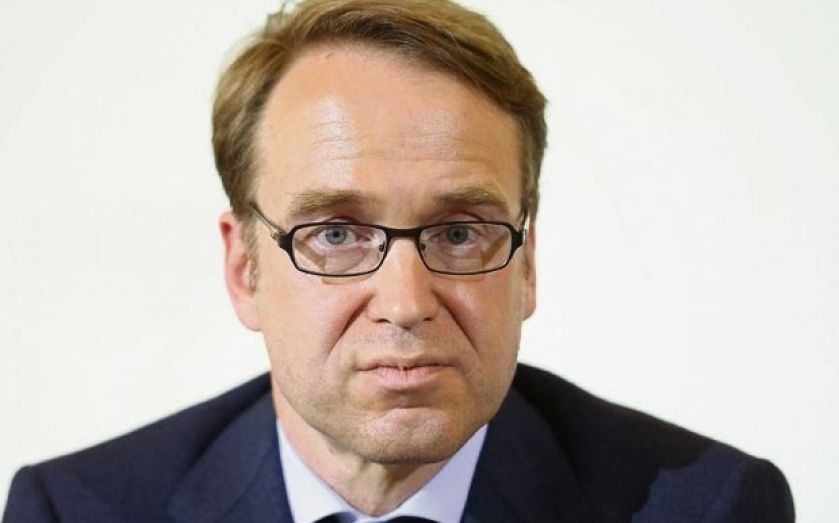CNBC Comment: Why ECB currency concerns won’t last

IT MAY be 1 April, but there’ll be no joking at the European Central Bank (ECB). It meets again this week, and the pressure is on. The latest inflation print showed an annual rate of just 0.5 per cent in March, below forecasts and the lowest rate since 2009.
Almost instantaneously, the head of the IMF in Europe said that there’s room for more monetary easing, as low inflation makes tackling debt more difficult. Given that the ECB’s inflation target rate is 2 per cent, it’s hard to argue against that, yet it’s still unlikely we’ll see any action from the central bank on Thursday.
Perhaps anticipating the inflation figure, Bundesbank president Jens Weidmann got his retaliation in early on Saturday. He says the Eurozone is not in a deflationary cycle and the ECB should not over-react to a slowdown in inflation caused largely by what he describes as cyclical factors, which should prove temporary.
But it’s not just inflation. The other side of the coin is very sluggish growth, and there are warnings that this could be made worse by the ECB’s own asset quality review of banks. According to EY, business lending growth has been revised down for the second time this year, from 1.6 per cent to just 0.5 per cent, as banks prepare for the near term effects of the review. Lending should accelerate in 2015, but EY warns that any capital shortfalls bigger than €60bn (£49.7bn) will result in further lending constraints of at least 0.4 per cent. That will have another detrimental impact on both growth and inflation.
Against this backdrop, it will be extremely hard for the ECB to toe the current line and not act again over the course of the year. In the meantime, it may well continue attempts to jawbone the euro lower. But I have a feeling that markets will eventually decide the single currency doesn’t deserve its current levels.
As Capital Economics points out, the spread between 10 year yields on US and German government bonds is close to the largest it has been since the start of European monetary union, and the consultancy believes it will continue to widen. It forecasts that, by the end of 2014 and 2015 respectively, bund yields will hit 1.75 per cent and 2 per cent. Ten year US Treasury yields, by contrast, will be 3.25 per cent and 3.5 per cent.
If Capital Economics is right, and we also begin to see a thaw in the snow-affected US data this week, it will take some extraordinary flows to keep the euro at current levels. The ECB won’t need to worry about the currency. A Federal Reserve that starts planning to hike official rates in America next year, combined with a relatively much weaker outlook for the Eurozone economy, will see to that.
Ross Westgate co-presents CNBC’s Worldwide Exchange. Follow Ross on Twitter @rosswestgate